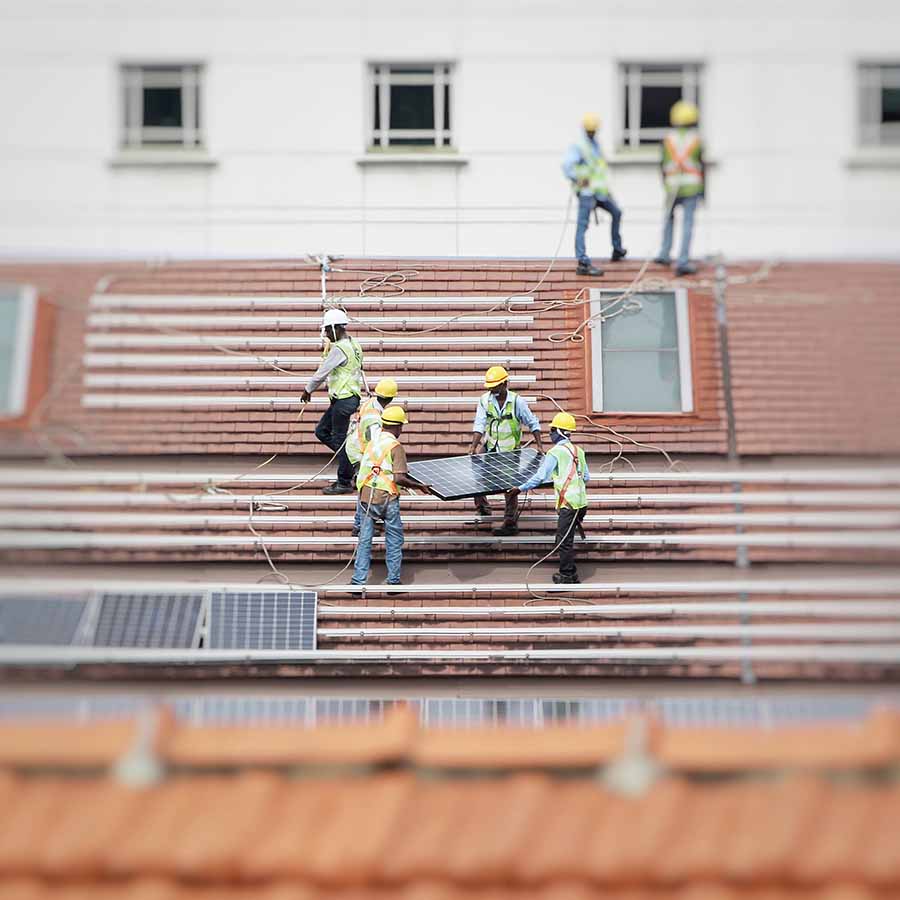Homeowners are increasingly considering solar power as a wise investment as energy costs continue to increase and environmental issues gain urgency. You may lower your carbon footprint and monthly electricity costs by installing a solar photovoltaic (PV) system on your property. Here are some ways a solar PV system might save you money and help you maximize your investment if you’re thinking about switching.
A Solar PV System: What Is It?
A solar photovoltaic (PV) system uses solar panels, usually installed on your ground or roof, to directly convert sunlight into power. Depending on your energy supplier and system configuration, the electricity produced can be exported back to the grid for credits, stored in a battery, or utilized to power your house.
1. Reduce Your Power Costs
Lower energy expenses are the most evident advantage of putting in a solar PV system. You will use less electricity from the grid once your panels are placed and working, particularly during the day when your system is producing the most power.

Depending on variables including system size, electricity usage, and local energy costs, this can result in a 50–90% decrease in electricity expenditures for many homeowners.
2. Benefit from Net Metering
You can sell extra electricity produced by your solar panels back to the grid through net metering schemes, which are available in many areas. If your system generates more electricity than you require, the excess energy is sent to the grid and you receive credit from your utility provider. When your system isn’t producing electricity, such as at night or on overcast days, you can spend those credits.
Your yearly electricity expenses may be further decreased as a result, and in certain situations, your utility bill may be almost $0.
3. Take Advantage of Government Rebates and Incentives
Many governments provide incentives for the installation of solar PV systems in an effort to promote the use of renewable energy. These may consist of:
- Deductions or credits for taxes
- Rebates up front
- Loans with low interest rates
- Tariffs that are fed in
For instance, homeowners can deduct a portion of the cost of installing a solar system from their federal taxes in the United States thanks to the Federal Solar Investment Tax Credit (ITC). These incentives can increase the return on investment of your system and drastically reduce your initial expenses.
4. Raise the Value of Your Property
In addition to saving you money, installing solar panels can raise the value of your house when you decide to sell it. Homes with solar systems sell more quickly and for more money than similar homes without them, according to studies. Energy-efficient homes with fewer recurring expenditures are becoming more and more appealing to buyers.
5. Guard Against Increasing Energy Prices
The cost of electricity tends to increase over time and is frequently unpredictable. Since you are producing your own electricity with a solar PV system, you are less susceptible to increases in utility prices. These savings can pile up throughout the course of your system’s 25+ year lifespan.
6. Combine with Battery Storage to Save Even More
Consider integrating a battery storage system into your solar setup for even greater control over your energy consumption and expenses. With batteries, you can maximize your savings and independence from the grid by storing extra solar energy produced during the day and using it at night or during periods of high demand.One of the best investments you can make for both your house and your pocketbook is a solar photovoltaic system. Over the course of your system’s life, you can save thousands of dollars by using your energy more efficiently, lowering your dependency on the grid, and utilizing incentives.
If you’re prepared to move forward, begin by assessing the solar potential of your house and obtaining an estimate from a trustworthy local installation. You will begin saving sooner if you switch to solar power.

